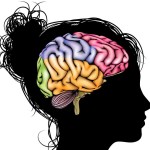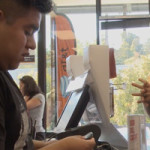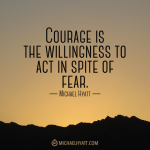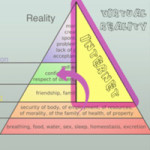At Palmy Boys’
While it can be easy to be mentally strong when life is going well, your true strength becomes apparent through adversity. The loss of a loved one, a health problem, relationship issues, and financial troubles are just a few of the hardships most of us will face at one time or another….. read more.
Parenting is super-demanding and I want us to have as much cheerleading as we can get. We should be cut some slack for not getting everything perfect … except in one crucial area: alcohol….. read more.
Over the past decade our families have been swept up by a screen tsunami. Children and adults are walking around with screens in our bags and backpacks, our pockets, and our palms. We are always turned on, and neuroscientists are discovering that it is rewiring our brains – and the new neural connections are not functioning as well as the old ones….. read more.
Emotional intelligence refers to the ability of a person to manage his emotions in a healthy way and to respond appropriately to the feelings of others… read more.
Teens can’t control impulses and make rapid, smart decisions like adults can — but why? Research into how the human brain develops helps explain. In a teenager, the frontal lobe of the brain, which controls decision-making, is built but not fully insulated — so signals move slowly…. read more.
Concerns are growing around underage gambling in New Zealand amid reports teenagers are placing bets through online games. Reports of kids winning as much as $2000 on online games come as the Department of Internal Affairs (DIA) says it is looking at how to address the problem… read more.
It has become a cultural cliché that raising adolescents is the most difficult part of parenting. It’s common to joke that when kids are in their teens they are sullen, uncommunicative, more interested in their phones than in their parents and generally hard to take. But this negative trope about adolescents misses the incredible opportunity to positively shape a kid’s brain and future life course during this period of development…. read more.
Why do teenagers seem so much more impulsive, so much less self-aware than grown-ups? Cognitive neuroscientist Sarah-Jayne Blakemore compares the prefrontal cortex in adolescents to that of adults, to show us how typically “teenage” behavior is caused by the growing and developing brain…… read more.
Many teens feel as though they’re in a no-win situation when it comes to sharing information online: damned if they publish their personal thoughts to public spaces, and damned if they create private space that parents can’t see. Parent-teen battles about privacy have gone on for decades. …. read more.
A film devoted to developing who we are and who we want to be in the world…. read more.
Siegel illuminates how brain development impacts teenagers’ behavior and relationships. Drawing on important new research in the field of interpersonal neurobiology, he explores exciting ways in which understanding how the teenage brain functions can help parents make what is in fact an incredibly positive period of growth, change, and experimentation in their children’s lives less lonely and distressing on both sides of the generational divide…. read more.
Staying healthy as a man requires more than just picking stuff up and putting stuff down… read more.
Harmful digital communication can take many forms. Learn mre about the new Act and how to dael with online harassment… read more.
Researchers find people who meet friends and family at least three times a week far less like to have depression than those who have only ‘virtual contact’… read more.
Children can’t resist the pull of electronic devices, and parents don’t know what to do about it. Sound familiar? The average child spends more time consuming electronic media than going to school, with many teenagers going online “almost constantly.” And parents aren’t necessarily being good role models. A British study showed that while six in 10 parents worried that their children spend too much time in front of a screen, seven in 10 children worry that their parents are the ones who are plugged in and tuned out…… read more.
A unique award-winning computer program that helps young people learn skills to deal with feeling down, depressed or stressed….. read more.
Courage is an important aspect of positive psychology that allows one to overcome personal limitations and pursue a full life (Diener, 2012). Being a courageous person is what maximizes one’s chance to grow and develop throughout life (Seligman, 2011). Courage is not a matter of feeling no fear. Courage is the strength in facing one’s destructive habits: For example, the courage of an addict overcoming his or her addiction or the person abused as a child overcoming deep psychological traumas to become a loving and productive adult…. read more.
Most young New Zealanders have the resilience required to thrive during their adolescent years, but a significant proportion – 20 per cent – struggle to deal with behaviours, emotions, or experiences that could put their wellbeing at risk… read more.
How virtual reality has made social isolation more seductive than ever before… read more.



















